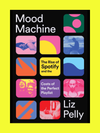How Lincka Wrote the Three-Year-Old Song That Became the Anthem of Anti-ICE Protests
In her first interview since her 2022 song found a viral second life as a protest soundtrack, the Oklahoma City artist says “this was inevitable.”

The Oklahoma City musician Lincka wrote “Chinga La Migra,” her gorgeous ballad about immigration, in 2022. In the last week or so, as anti-ICE protests flourished around Los Angeles, the song has become their unofficial soundtrack on big Instagram pages—prominent activists, an HBO star—alongside images of protest signs and selfies. Part of the reason this glimmering slow-burner about the U.S. immigration labyrinth has taken off is the way Lincka sings—with a full heart and the range to encapsulate the complicated sorrow, defiance, grief, and hope that can accompany the experience of migrating to the United States.
I hadn’t heard Lincka’s music before last week—despite her having been featured on NPR and performed at the Kennedy Center—but was immediately taken with her 2023 EP El Putasio, which showcases her inventive songwriting on mostly upbeat alt-pop. Writing “Chinga La Migra”—which, in essence, means “fuck the immigration cops”—involved “a little bit of ego death,” she says, “because I love to dance and perform with the drama of it all. But it's a ballad.”
I video-chatted with Lincka on Friday afternoon, wondering about how she felt about a three-year-old song voicing a movement, but also about her music in general. Her originality, she told me, comes from seeing her dad and abuelito play their nylon-stringed guitars in their own way, and how her mother taught her to “articulate my words,” to defend herself in English and Spanish, and express herself freely.
“For a long time, I didn’t feel like I was enough in my own music,” Lincka told me. “I questioned the way I created, the way I presented my sound. It didn’t sound traditional, it wasn’t familiar—and I worried that older generations wouldn’t understand or accept it. But the more I leaned into my originality, the more liberated I felt. And the more I embraced what made me different, the more respect I received—not in spite of my uniqueness, but because of it.”





